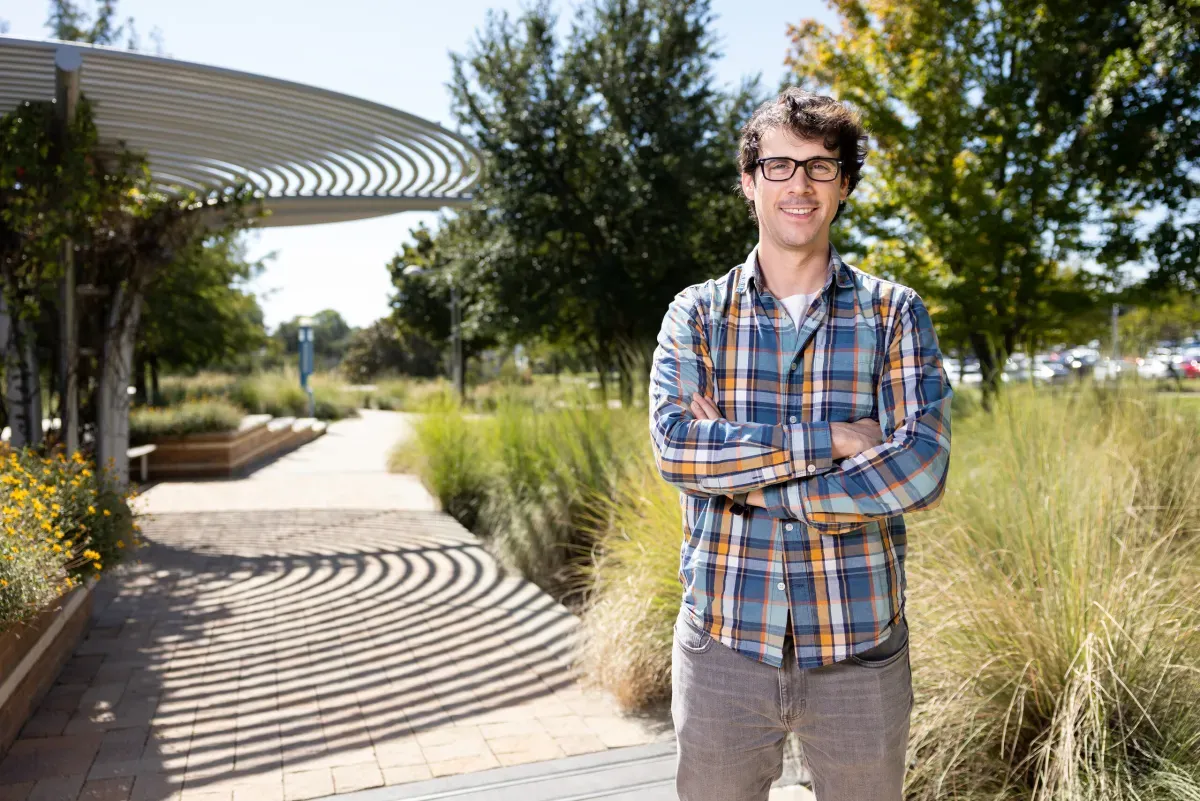UT Arlington researchers celebrate investment of billions in brain health
The University of Texas at Arlington (UTA) is broadening its research into brain health, concentrating specifically on how individuals navigate their environment and retain information.

The University of Texas at Arlington (UTA) is broadening its research into brain health, concentrating specifically on how individuals navigate their environment and retain information. This work aims to develop better methods for boosting cognitive abilities and delaying the onset of decline seen in diseases like Alzheimer’s.
Data from the National Institutes of Health indicates that over six million Americans currently live with some form of dementia, and it's estimated that nearly half (42%) of those aged 55 and older will eventually receive a dementia diagnosis. These figures highlight the critical need for ways to protect cognitive abilities.
Steven Weisberg, who started his position as an assistant professor of psychology at UTA in September after working at the University of Florida, brings considerable expertise in cognitive neuroscience to this field. He recently partnered with researchers Arne Ekstrom and Li Zheng from the University of Arizona. Their collaborative study, published in the journal eLife, explored how directed cognitive training could enhance young adults' navigation and memory skills.
The research findings suggested that the hippocampus, a key brain region for memory and spatial orientation, did not physically enlarge during the training. Instead, Dr. Weisberg explained that the enhancements originated from "functional brain changes that support behavioral differences."
He used the analogy of someone wanting to improve their tennis or golf game by lifting weights. While building muscle might help, it doesn't directly improve performance in a skill-based sport. He elaborated, "When you learn something over time, it’s not necessarily that your brain grows like a muscle. Rather, the connections between different parts of your brain shift—the way they talk to one another changes—and the plasticity supports behavioral improvement."
Dr. Weisberg noted that these findings call for further investigation into how short-term training might affect the brain's memory and navigation systems long-term.
For the study, Weisberg and his team tracked 75 young adults during a one-month period involving 12 two-hour sessions. Participants were assigned to one of three groups: navigation, verbal memory, or control. The navigation group engaged in training using a video game-like virtual city, beginning at landmarks and navigating to various locations. Weisberg reported that participants demonstrated clear improvement over time. "They learned new areas of the environment more quickly than at the beginning, which is what we call near transfer. They learned faster over time," he stated. "Far transfer, which we didn’t show in this study, is when people apply what they learn in unrelated tasks."
The verbal memory group also showed near transfer. They utilized a technique involving linking words to personal memories to enhance recall, as Weisberg explained. "The idea is to link words with temporal autobiographical memories to strengthen recall," he said. "As expected, participants learned longer word lists over time—again showing near transfer."
Now, Weisberg and his colleagues are planning a similar study focused on older adults (63 years and older). Key objectives include assessing feasibility—whether virtual reality can effectively train navigation in this demographic—and evaluating behavioral transfer. "In the younger adult study, we showed near transfer but not far transfer," Weisberg mentioned. "We want to measure far transfer in this older group." The upcoming study will substitute the verbal memory condition with an attention-focused task, which has shown potential for far transfer in older adults.
Ultimately, Weisberg, along with his colleagues at the University of Arizona and the University of Florida, intends to conduct a large-scale, well-funded clinical trial to assess these effects more broadly. He expressed that UTA is an excellent setting for such research, crediting its investment in the $6.2 million Clinical Imaging Research Center. This facility, which opened in November 2024, houses a state-of-the-art 3-Tesla MRI machine. "It’s exciting to be at a University that’s engaging deeply with brain health research," he commented. "With UTA’s investment in imaging and neuroscience, we can ask bigger questions about how the brain changes with age and how we might help people stay sharper, longer."




